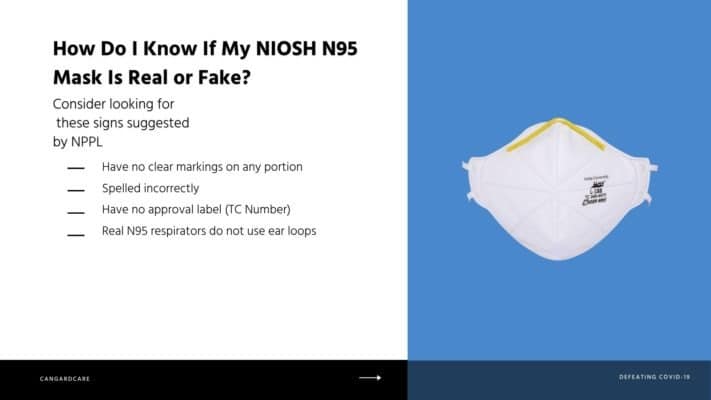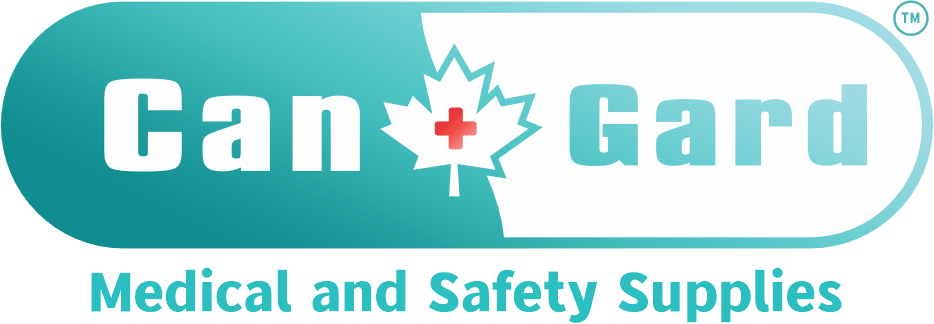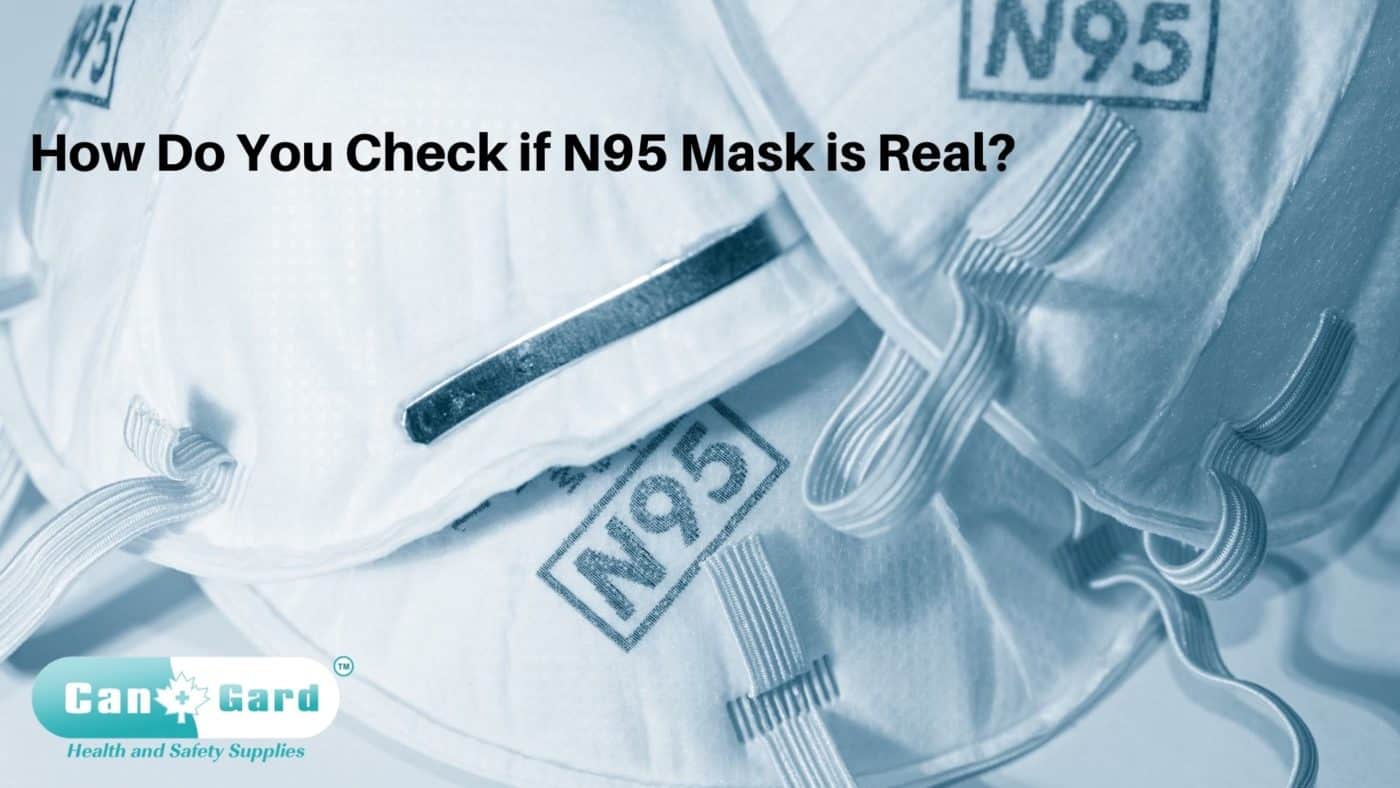No products in the cart.
Face Masks
How Do You Check if an N95 Mask is Real?
The Centers for Disease Control and Prevention (CDC) has warned the public about the proliferation of counterfeit N95 respirators, which are being sold in offline and online stores. But how would you know if you are already wearing a fake N95 respirator? Here’s our detailed guide on how to check if your N95 mask is real.
N95 Mask and its Benefits
With the rampant cases of the COVID-19 pandemic nowadays, everyone should have their personal protective equipment. One of the essential personal protective equipment required for the masses is masks that are now very in demand in the market. Because of its demand, different types of masks are now readily available and can be purchased anywhere. One of the most recommended types of a mask is the N95. Here are some reasons why healthcare professionals mostly prefer N95 mask respirators:
- N95 masks are highly protective respirators and can keep health care workers such as doctors and nurses from getting infected against any viral respiratory infections
- This type of mask fits tightly to the wearer’s face, which provides better protection since it provides limited to no facial seal leakage
- This type of mask gives very efficient filtration of airborne particles
N95 masks do not just filter out 95 percent of viruses and other bacteria, but they also let the users breathe as comfortably as possible. N95 respirator also comes in different models available in the market, one of which is the N95 L-188 Respirator Mask. L-188 is a type of N95 mask with a foldable style that makes it more convenient not just for storage but also for transportation.
However, just like any other products sold in the market, the risk of buying fake N95 masks is inevitable, especially if the customers are not knowledgeable about the differences between the original and fake N95 masks.
Counterfeit N95 Masks Won’t Work The Same
The CDC has reported that counterfeit N95 respirators are marketed as “approved” products by the National Institute for Occupational Safety and Health (NIOSH) on the market, as claimed by marketers, potentially putting anyone at risk of acquiring and transmitting respiratory infections. Fake N95 respirators may not be capable enough to provide effective respiratory protection to the wearer due to falsified claims for testing performance. At the same time, counterfeit N95 respirators can be made of low-quality filtering materials, which may be insufficient to block dangerous airborne particles in contaminated workplaces.
As of early March this year, a number of media outlets have reported that counterfeit N95 respirators have been circulating in various private and public healthcare institutions in different parts of the world. Some still remain unaware of the existence of fake N95 respirators. This is why it is important to know how to figure out the fake ones from the real N95 respirators.
Checking if an N95 Mask is Real or Fake: Signs to Watch Out For
It is a must that ordinary consumers should have the ability to determine fake N95 masks from the original ones to prevent purchasing the wrong masks. Some of the observable characteristics of a fake N95 mask are:
- Its filtering facepiece respirator does not contain any markings at all (this is already a warning sign that the N95 mask is inauthentic)
- Markings such as “NIOSH” (National Institute for Occupational Safety and Health) are absent on the mask.
- Counterfeit N95 masks have no approval label indicated on the filtering facepiece respirator (referring to TC number on the unit or headband).
- Custom-made N95 masks that have any sequential design or any usage of decorative fabric would also indicate a fake N95 mask.
- Real N95 respirators do not use ear loops but rather headbands to ensure proper face fit.
How to Identify a Fake NIOSH N95 Mask
To identify a NIOSH-certified N95 respirator, always look for the NIOSH approval marking printed somewhere on the packaging or user instructional manual. An abbreviated approval “NIOSH” label is also written on the N95 respirator. All approved filtering facepiece respirators will always indicate their designated product code like N95, N99, N100, R95, R99, R100, P95, P99, P100 as proof for passing the standard testing.
Another way to determine if the N95 respirator is fake or not is to verify the approval number on the NIOSH Certified Equipment List (CEL) or from its Trusted Source Page. NIOSH Certified Equipment List contains all approved personal protective equipment of different manufacturers and accredited distributors across the world. If you are not sure about the product authenticity of your N95 respirator, consider looking for these signs as suggested by The National Personal Protective Technology Laboratory (NPPTL):
- Counterfeit N95 respirators have no clear markings on any portion of the protective device.
- Fake N95 respirators may possibly display the name NIOSH on the box but spelled incorrectly or if the official NIOSH marking is not clear enough.
- Ensure that the “NIOSH” logo is written in block letters and should be printed on the outside.
- You will not find any NIOSH marking on the packaging as well as on the filtering facepiece respirator itself.
- NIOSH-approved N95 respirators do not contain decorative fabrics or add-ons like fancy colours, sequins, and bangles.
- The National Institute for Occupational Safety and Health (NIOSH) does not approve any respiratory protection for children; thus, if the N95 claimed approval for children, it is fake!
Remember that a genuine NIOSH-certified N95 respirator has a label within the packaging of the mask, together with an approval number and complete manufacturer details. When talking about details, the packaging should display the address, contact numbers, regulatory agency, and accredited business organization of the manufacturer.

Warning Signs for Third-Party Marketplaces
Some masks from the original manufacturers are already distributed in other marketplaces such as the web or the internet. Many people now prefer to buy in bulk or large quantities on the internet because of its convenience. But before doing so, you, as a consumer, should look for warning signs in any third-party marketplaces.
Here are the things that you, as a customer, should be careful of when planning to purchase something using a third-party marketplace:
- Sometimes, when a marketplace claims to be legitimate, they are most likely not.
- Always check for any feedback from past customers, like how satisfied they were with their purchase or transaction history.
- Check if the prices are too reasonable to be valid from the original price. Sometimes if a product’s price fluctuates wildly, then they may replace it with substandard materials.
- Check for third-party marketplace transparency. The seller should not hide any of her market store information like contact information. Also, check if the seller makes any marketplace policy violations.
- Check if there are any fluctuations of the items traded over time. Legitimate businesses sell products that they are well equipped at and are mostly consistent with their products.
- Check if their stock on hand is unlimited. An unlimited supply of these masks would somehow mean that it is not approved.
These are some basic precautions that one should be aware of before purchasing anything from third marketplaces or unfamiliar websites. These things should be taken into consideration first by the consumers before deciding on buying any masks online.
Check All Guidelines & Report When Necessary
As a precaution, health professionals, project managers, and respiratory program administrators are highly encouraged to check actual filtering facepiece respirators using the above guidelines set forth by NPPTL. To help manufacturers, users, and providers become aware of these counterfeit masks, concerned observers also post examples of product misrepresentation and tips over the internet.
It is safe to assume that the general public will likely encounter these counterfeit N95 respirators continuously on the market as long as the recent global health crisis remains unresolved. So, practice due diligence and report any selling of fake NIOSH-approved products to the proper authorities.
Shop Authentic N95 Masks at CanGard Today
Checking whether your N95 mask is real or not is very important because your health is at stake. Authentic N95 masks would provide you with the appropriate protection that you would need to combat the invisible viruses in the naked eye. Only the authentic one will assure you that you and the people surrounding you are protected in the best possible way.
Stop guessing whether your N95 mask is real or fake. Shop our collection of genuine N95s today and have peace of mind you’re purchasing from a reputable supplier.
Article Updated 2023-10-18

